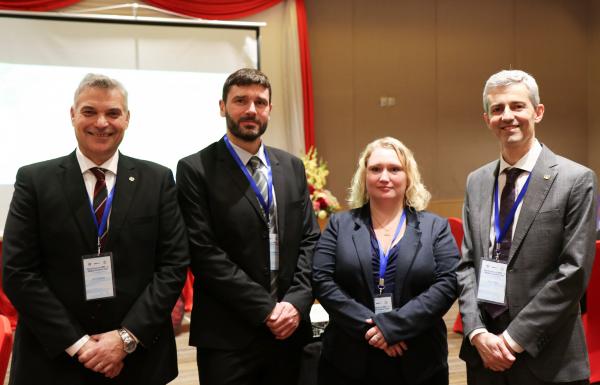The International Maritime Organization’s 2020 Global Sulphur Cap Regulation came into effect as of 1 January 2020, limiting sulfur in fuel oil used onboard ships operating outside designated emission control areas to O.5O% m/m (mass by mass), from 3.5O% m/m. Similar efforts in reductions in both 2010 and 2015 were unfortunately met with numerous incidents of non-compliance. Monitoring and enforcement of the new limit is the responsibility of Governments and national authorities of Member States that are Parties to MARPOL Annex VI.
The IMO’s 2020 Sulphur Cap is a significant challenge for the shipping industry. To facilitate capacity building regarding the new regulation, a cooperation agreement between the Danish Maritime Authority (DMA) and the World Maritime University (WMU) is bringing administrations together to share knowledge on sulphur enforcement in key regions. The workshops are supported by the Danish Maritime Fund, with contributions from the Danish Ministry of Environment and Food also contributing.
The first of three international workshops took place in Yangon/Myanmar from 13-15 January in order to discuss and share solutions and best practices for effective enforcement. Indicative topics covered included the associated legal basis, fuel samples, document checks, targeting mechanisms, remote sensing and use of sniffers, training of inspectors and sanctions.
Welcome remarks and presentations were made by the Myanmar Maritime Authority, MTCC-Asia, WMU and DMA. The role of WMU included providing an overall view on air pollution resulting from international shipping with a focus on air pollutants. DMA and Sulphur Emission Control Area (SECA) experts presented best practices from the SECA regions. Challenges with regard to compliance and enforcement of the new IMO’s 2020 (Global) Sulphur Cap were highlighted by regional representatives. A strong, practical element of the workshop included the opportunity for three different groups to focus on case studies of particular local relevance
MTCC Asia provided valuable support for the workshop. WMU was represented by Professor Aykut Ölcer and Associate Professor Dimitrios Dalaklis. A total of 46 participants from Bangladesh, Cambodia, Myanmar, Indonesia, Malaysia, Thailand and China were in attendance. Successive workshops will be hosted by MTCC-Africa in Kenya and by MTCC-Caribbean in Trinidad & Tobago in Spring 2020.


